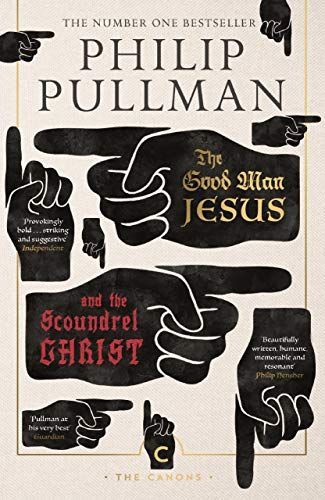
The Good Man Jesus and the Scoundrel Christ
'If I vanished he wouldn't notice, if I died he wouldn't care. I think of him all the time, and he thinks of me not at all. I love him, and my love torments me. There are times when I feel like a ghost beside him; as if he alone is real, and I'm just a daydream.'This is the story of two brothers.One is impassioned and one reserved.One is destined to go down in history and the other to be forgotten. In Pullman's hands, this sacred tale is reborn as one of the most enchanting, thrilling and visionary stories of recent years.
Reviews
Gavin@gl
Adam Valentino@lug
Xavier Roy@xavierroy
André Nóbrega@anobrega85
adcv@adcv
Cody Degen@codydegen
Ed Kay@edk
Michelle@jackalope
Isobel @isobel_1711
Elda Mengisto@eldaam
Kate Sigrist@katesigrist
Ri Liu@riblah
Jon Noronha@thatsjonsense
Daniel Waterhouse@wanderingvc
Yulianna Aparicio@yaponcedeleon
K. Qua@stepfordknives
Luke Leighfield@lukeleighfield
Paulina @kotkulturowa
Lisa Miller@kiwiflowa
Sam Spott@samalot
Akanksha Chattopadhyay@akanksha_chattopadhyay
Elke Maasbommel@theopenbook
Danu Poyner@danupoyner
Ian Mason@thedimpause